The Sea Peoples were a purported confederacy of naval raiders who harried the coastal towns and cities of the Mediterranean region prior and during the Late Bronze Age collapse (1200 BC – 900 BC).

Image source:https://en.wikipedia.org/wiki/Sea_Peoples#/media/File:Ancient_carving_-_Shasu_spies_being_beaten_by_Egyptians.png
Mysterious Origins of a Seafaring Coalition
The Sea Peoples’ origin is particularly obscure as the existing records of their activities are mainlyEgyptiansources who only describe them in terms ofbattle. It is known that the seafaring confederation attacks were mainly concentrated on Egypt and other regions of the East Mediterranean, but where these warriors came from remains a mystery. Some of the hypotheses that have been made in these regards, place the origin of the Sea Peoplesin western Asia Minor, the Mediterranea islands, or southern European countries.
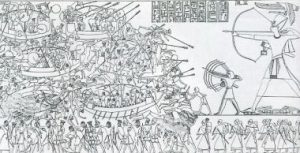
Image source:https://en.wikipedia.org/wiki/Sea_Peoples
A Term for the Tribes Coming from the Sea
No ancient inscription names the coalition as “Sea Peoples”. This is a modern-day designation first coined by the French EgyptologistEmmanuel de Rougéin 1955. He used the term “peoples de la mer” (literally “peoples of the sea”) in a description of reliefs on theSecond Pylon at Medinet Habudocumenting Year 8 of Ramesses III.Gaston Maspero, de Rougé’s successor, popularized the term “Sea Peoples” in the late 19th century. De Rougès, and Mespero after him, came up with the term because the ancient Egyptian reports claim that these tribes came “from the sea” or from “the islands” but they never mention which one. For this reason, many scholars believe that the origin of these invading sea warriors was common knowledge among the Egyptians that it was superfluous to mention it in inscriptions.

纪录片记录:法老拉美西斯二世和他的Successors
The three great pharaohs who record their conflicts and victories over the Sea Peoples areRamesses II(The Great, 1279-1213 BCE), his son, and successorMerenptah(1213-1203 BCE), andRamessesIII (1186-1155 BCE). All three claimed great victories over their adversaries andtheir inscriptionsprovide the most detailed evidence of the Sea Peoples.
However, the Egyptian documents giveconflicting reports, for example in Ramesses the Great’s account, the Sea Peoples are mentioned as allies of the Hittites but also as serving in his own army as mercenaries. While Merenptah accounts narrate ofcontinuous troublescaused by the Sea Peoples, who allied themselves with the Libyans to invade the Nile Delta and Egypt.

Image source:https://search.creativecommons.org/photos/7c8774c7-500b-4464-a74f-e4c4e502efc5

Image source:https://search.creativecommons.org/photos/e41cd100-810f-4e7a-9ec6-c2771b407166
The Importance of the Sea Peoples on History
While the identity and origins of the Sea Peoples remain mysterious, the terrors they inflicted upon the ancient world are very well documented.
Anyway, lacking sufficient evidence, historians can’t say for sure what their impact on the ancient world was, although some scholars speculate they may have indirectly led tothe fall of the Hittite Empireand even the mysteriousLate Bronze Age collapsethat saw many of the Near East’s kingdoms fall and the region sent into a kind of dark age in approximately 1177 B.C.
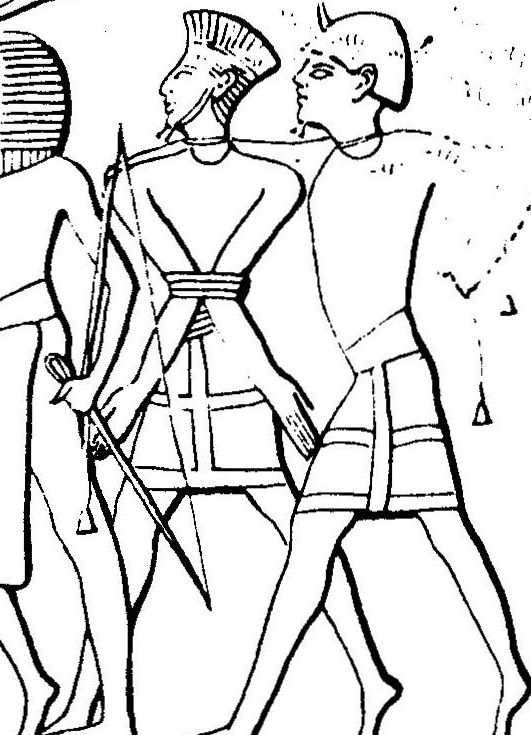
Image source:https://search.creativecommons.org/photos/20743711-edd7-4c7a-b352-db37799d849f
The Design of the Sea People Ships
The Sea People’s combat ships are unique among theBronze Ageseafaring vesselsin having identical bow and stern to each other.
的使用bird-headed motifwas culturally important as much to place it on their ships to adorn them, on the bow and stern. It has been suggested that these vessels are the final stage of a long line of development in theMycenaean shipbuilding traditionsharing traits similar to the bird-headed prows of early Mycenaean examples.
It must be considered that the ships of the Sea Peoples may very well be just one example of a modifiedAegean designcapable of multiple operations in the open sea, the stranding prow of several of the Sea Peoples is noteworthy and goes to show that theEgyptian sculptorswho put this naval scene together may very well have captured the real ships of the Sea Peoples to study closely and baste their sculptures.
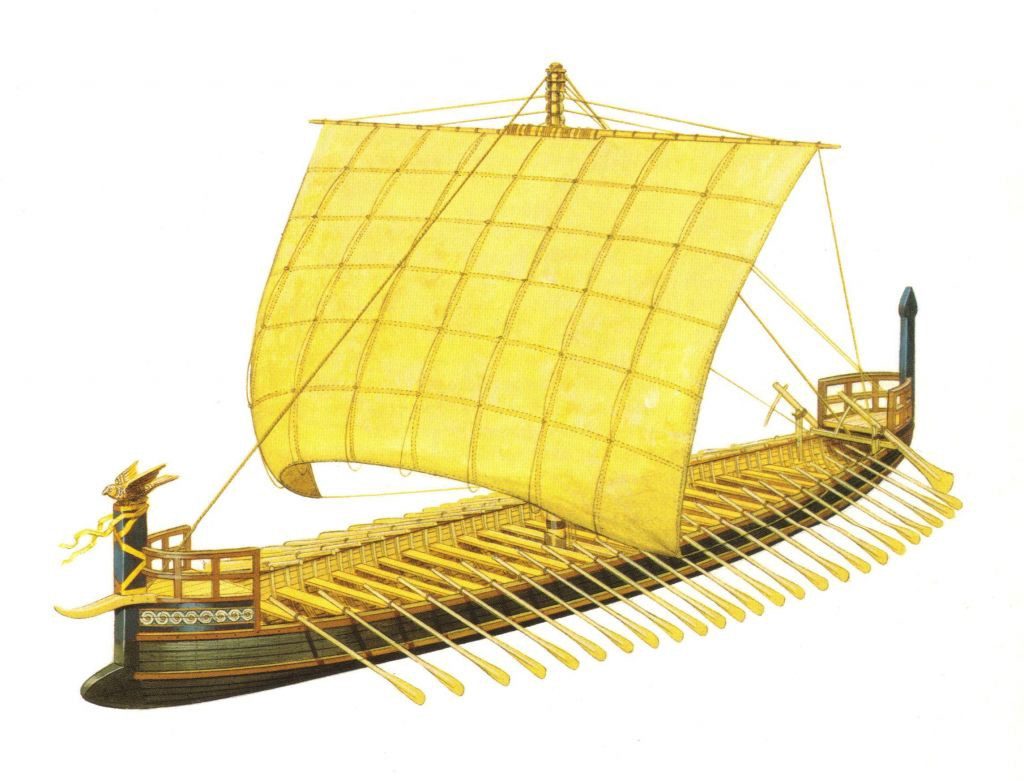
Image source:https://www.ancient-origins.net/myths-legends/identifying-teresh-sea-peoples-001959
Artcrafts: Amor and Weapons of the Sea Warriors
The Sea Peoples warriors wore armor that can be described as belonging to bothAegeanandWesternandSouthern Asia Minor, an amalgam of what appears to be sometimesMycenaeanand in other cases Minoan/colonial Minoan.
They worehorned-helmetas an integral component ofbody armor, ashield,and a weapon such as aswordor anaxe. These were meant to defend the Sea People warriors both from human enemies and fromferocious predatorsas lions, leopards, bears, wild boar, and wolves.
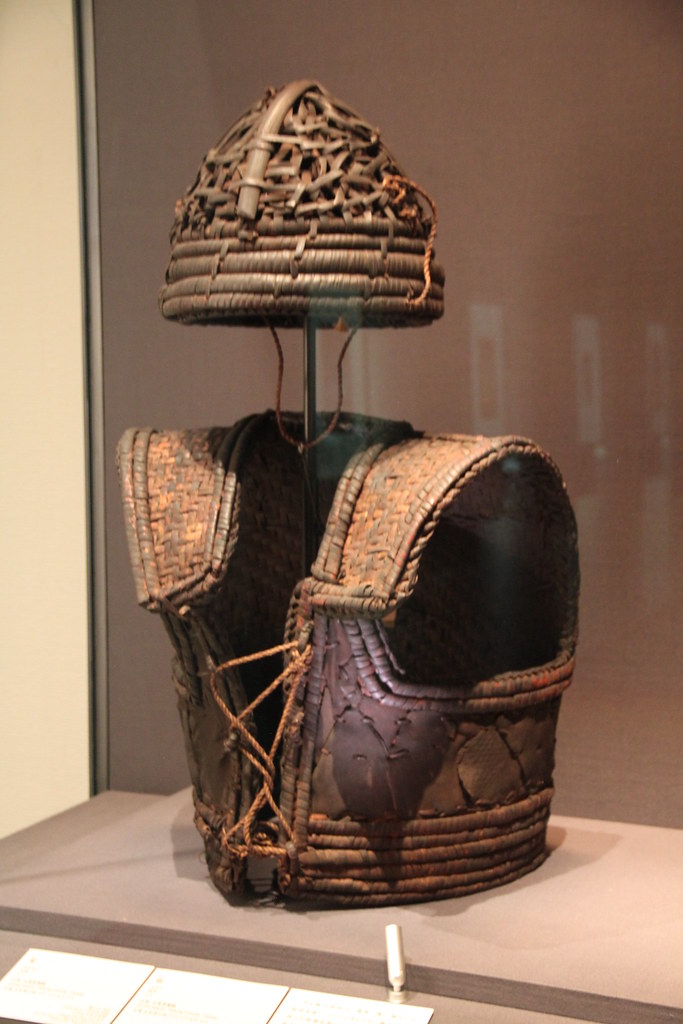
Image source:https://search.creativecommons.org/photos/16055470-2110-49ba-88fa-ffbce77b5c9b
Devising a New Shield
Flat surfaceshields, like the XV centuries BC ones, no matter what their size was they were rather dangerous when it comes to infantry lines clashes.
As a result of the buildup of pressure from advancing from their ranks and the enemy formation swapping the same way, a flat shield does not offer the warrior a ‘Breathing Space’ in which he can operate, hence the ability to be able breathing in thecrush of a mass infantry battlewas an overwhelming priority.
Thus aninteresting developmentwas made by the Sea People, just as the basic flat shape would have become a liability with more developed weapons appearing to counter them the simple process ofpinching the shield at its narrowest pointforces the two halves tobulge outproducing the classic Bronze Age figure-eight body-shields with their distinctivedeep double-bowl shape.Once this is achieved the same shape takes on a completely new and improved ability.
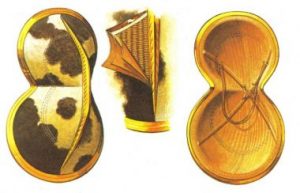
Image source:https://medium.com/the-bronze-age/intro-to-the-armour-of-the-sea-peoples-part-1-b35144d3f099
Info sources:
https://allthatsinteresting.com/sea-peoples
https://en.wikipedia.org/wiki/Sea_Peoples
https://www.ancient.eu/Sea_Peoples/
https://www.worldhistory.org/Sea_Peoples/
https://medium.com/the-bronze-age/intro-to-the-armour-of-the-sea-peoples-part-1-b35144d3f099
